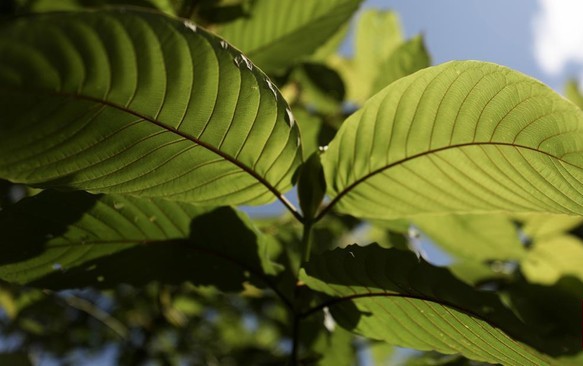Kratom is a tropical tree native to Southeast Asia, scientifically known as Mitragyna speciosa. The leaves of this plant have been traditionally used for centuries in countries like Indonesia, Thailand, Malaysia, and Papua New Guinea.
🌿 Origin of Kratom
Kratom belongs to the coffee family (Rubiaceae). Local farmers in Indonesia and Thailand used to chew the fresh leaves or brew them into tea to relieve fatigue, boost stamina, and support overall well-being.
🧬 Active Compounds
Kratom contains more than 40 active compounds, but two major alkaloids are:
- Mitragynine
- 7-hydroxymitragynine
These compounds interact with receptors in the brain that influence mood, discomfort, and alertness.
📦 Common Forms of Kratom
Today, kratom is available in various forms such as:
- Dried and crushed leaves
- Fine powder
- Capsules
- Extracts and resins
- Liquid shots or tinctures
⚠️ Is Kratom Safe?
Like many herbal substances, kratom has a range of effects depending on dosage and individual sensitivity. While some users report positive experiences, others may experience side effects like nausea, dizziness, or dependency with frequent use.
Disclaimer: This content is for educational purposes only. It does not promote or encourage the use of kratom. Always consult a qualified medical professional before using any herbal product.
📚 Sources & References
- NIDA – Kratom DrugFacts
- FDA – Kratom and Public Health
- PubMed Scientific Articles on Mitragyna speciosa



